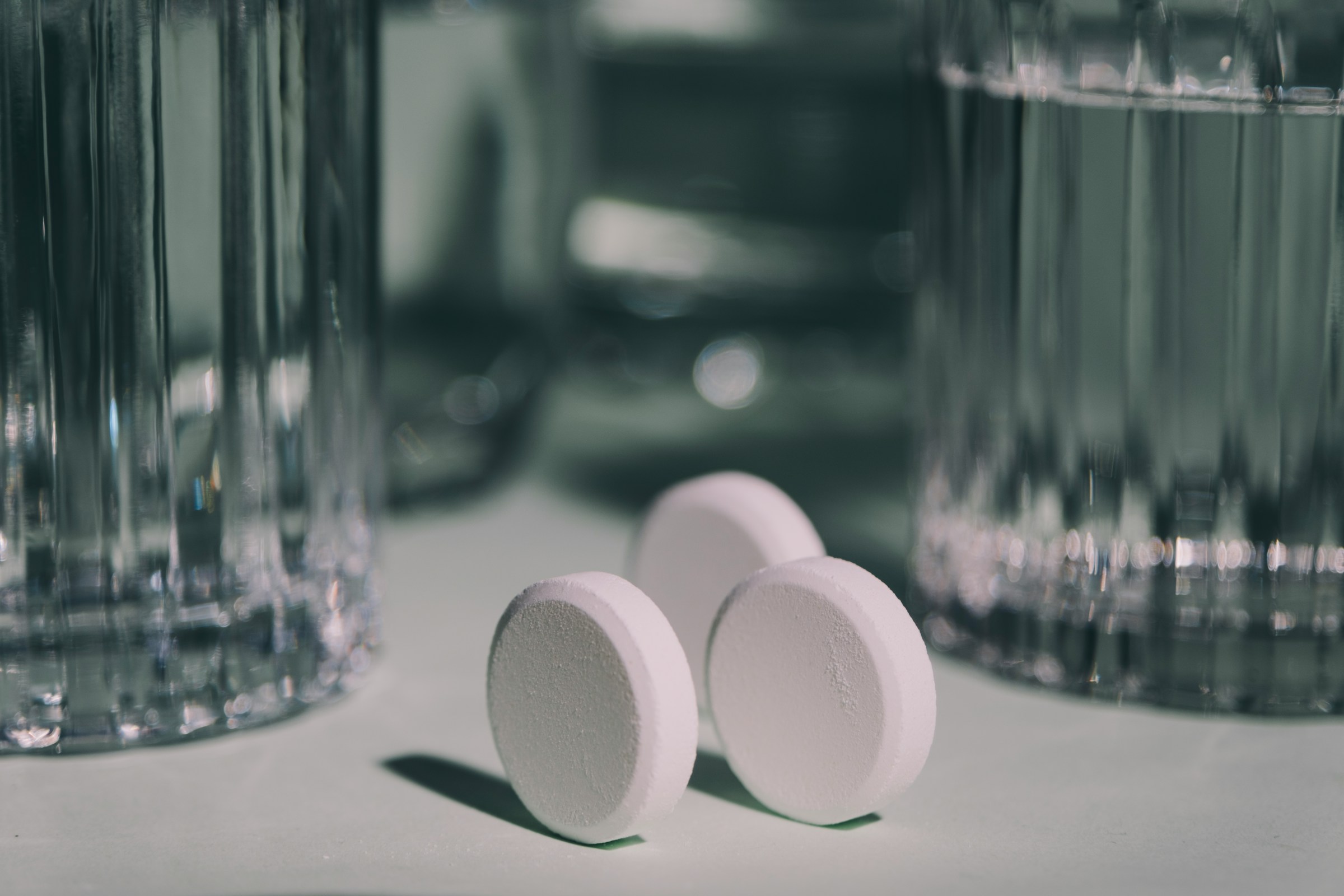Longer Life: How the Exposome Affects Our Health
Why not only genes but also environmental factors have an impact on health and aging

In Longevity research, it is becoming increasingly clear that it is not only our genes, but above all our environment and lifestyle that determine our health and longevity. A new concept, the so-called Exposome, is becoming increasingly important. But what is behind it, and how can we use this knowledge for a longer, healthier life?
What is the exposome?
The term Exposome describes the entirety of all environmental factors that a person is exposed to in the course of their life. These include not only obvious influences such as air quality, diet or exercise, but also social and psychological factors, stress, sleeping habits as well as contact with environmental toxins or microorganisms.
While that Human Genome Project In recent decades, our understanding of the genetic basis of diseases has revolutionized, it is becoming increasingly apparent that genes alone do not determine our fate. Rather, it is the interactions between genetics and environmental factors that determine health or illness. Scientists are therefore calling for a comprehensive Human Exposome Projectto better understand the impact of these factors. A recent study underscores the importance of this approach and shows that up to 90% of the disease burden is attributable to modifiable environmental factors.
Why is stress so relevant to longevity?
Our longevity depends largely on how well our body is able to deal with environmental stress. Chronic inflammation, oxidative stress and epigenetic changes are central mechanisms of aging, which can either be reinforced or mitigated by environmental factors. An optimized exposome can:
- reduce inflammatory processes and slow down cell aging,
- strengthen the immune system,
- promote cognitive health,
- and reduce the risk of age-related diseases.
How do we stay healthy?
Although many environmental factors are beyond our control, there are numerous ways to actively shape our individual exposure:
1. Optimize nutrition
A wholesome, antioxidant and anti-inflammatory diet with fresh vegetables, healthy fats and high-quality proteins can protect and regenerate the body.
2. Avoid toxins
Chemicals in cosmetics, cleaning agents and plastic products can have a negative effect on hormone balance and cell health. Consciously avoiding contaminated products helps to reduce the body's toxic load.
3. Prioritize sleep and regeneration
Good sleep is essential for cellular regeneration and the reduction of stress hormones. Reducing blue light in the evening, a cool sleeping environment, and regular bedtimes can improve sleep quality.
4. Movement and nature
Regular exercise — ideally in fresh air — strengthens the cardiovascular system, reduces stress and improves mitochondrial health.
5. Maintain social contacts and mental health
Positive social interactions have been shown to prolong lives. Meditation, mindfulness, and targeted stress management can also help lower cortisol levels and reduce inflammation.
The concept of the exposome illustrates how comprehensively environmental factors influence our aging. While research is still in its infancy, knowledge of this already offers numerous opportunities to actively improve one's own health. By making conscious decisions for a healthy environment, diet and lifestyle, we can specifically optimize our individual longevity factor.
Publiziert
31.3.2025
Kategorie
Longevity

Experte
Scientific Terms
Aging
The biological definition of aging may include all changes in the body associated with aging, including growth, development, and maturation. Some biologists reserve the term senescence (see below) for changes associated with loss of function and degradation later in life, but in modern parlance aging is synonymous with senescence. Demographers have their own definition: aging is the increase in the probability of death associated with changes in the body. This allows for the possibility of negative senescence (see above) or declining aging, in which the probability of death decreases with increasing age.
Epigenetics
From ancient Greek π epi 'to, moreover, 'and genetics
Refers to changes in a cell's gene expression that do not involve a change in the DNA code. Instead, the DNA and histones around which the DNA is wrapped are “marked” with removable chemical signals (see demethylation and deacetylation). Epigenetic tags tell other proteins where and when to read the DNA. This is comparable to a post-it on a book page that says “Skip.” A reader will ignore the page, but the book itself hasn't been changed.
Genetics
Science of heredity and genetic variation.
Inflammaging
Inflammatory aging (the English term inflam-aging or inflammaging is also widely used in German-speaking countries) refers to the increased release of pro-inflammatory cytokines and associated chronic diseases in older people.
In Longevity research, it is becoming increasingly clear that it is not only our genes, but above all our environment and lifestyle that determine our health and longevity. A new concept, the so-called Exposome, is becoming increasingly important. But what is behind it, and how can we use this knowledge for a longer, healthier life?
What is the exposome?
The term Exposome describes the entirety of all environmental factors that a person is exposed to in the course of their life. These include not only obvious influences such as air quality, diet or exercise, but also social and psychological factors, stress, sleeping habits as well as contact with environmental toxins or microorganisms.
While that Human Genome Project In recent decades, our understanding of the genetic basis of diseases has revolutionized, it is becoming increasingly apparent that genes alone do not determine our fate. Rather, it is the interactions between genetics and environmental factors that determine health or illness. Scientists are therefore calling for a comprehensive Human Exposome Projectto better understand the impact of these factors. A recent study underscores the importance of this approach and shows that up to 90% of the disease burden is attributable to modifiable environmental factors.
Why is stress so relevant to longevity?
Our longevity depends largely on how well our body is able to deal with environmental stress. Chronic inflammation, oxidative stress and epigenetic changes are central mechanisms of aging, which can either be reinforced or mitigated by environmental factors. An optimized exposome can:
- reduce inflammatory processes and slow down cell aging,
- strengthen the immune system,
- promote cognitive health,
- and reduce the risk of age-related diseases.
How do we stay healthy?
Although many environmental factors are beyond our control, there are numerous ways to actively shape our individual exposure:
1. Optimize nutrition
A wholesome, antioxidant and anti-inflammatory diet with fresh vegetables, healthy fats and high-quality proteins can protect and regenerate the body.
2. Avoid toxins
Chemicals in cosmetics, cleaning agents and plastic products can have a negative effect on hormone balance and cell health. Consciously avoiding contaminated products helps to reduce the body's toxic load.
3. Prioritize sleep and regeneration
Good sleep is essential for cellular regeneration and the reduction of stress hormones. Reducing blue light in the evening, a cool sleeping environment, and regular bedtimes can improve sleep quality.
4. Movement and nature
Regular exercise — ideally in fresh air — strengthens the cardiovascular system, reduces stress and improves mitochondrial health.
5. Maintain social contacts and mental health
Positive social interactions have been shown to prolong lives. Meditation, mindfulness, and targeted stress management can also help lower cortisol levels and reduce inflammation.
The concept of the exposome illustrates how comprehensively environmental factors influence our aging. While research is still in its infancy, knowledge of this already offers numerous opportunities to actively improve one's own health. By making conscious decisions for a healthy environment, diet and lifestyle, we can specifically optimize our individual longevity factor.
Publiziert
31.3.2025
Kategorie
Longevity

Wissenschaftliche Begriffe
Aging
The biological definition of aging may include all changes in the body associated with aging, including growth, development, and maturation. Some biologists reserve the term senescence (see below) for changes associated with loss of function and degradation later in life, but in modern parlance aging is synonymous with senescence. Demographers have their own definition: aging is the increase in the probability of death associated with changes in the body. This allows for the possibility of negative senescence (see above) or declining aging, in which the probability of death decreases with increasing age.
Epigenetics
From ancient Greek π epi 'to, moreover, 'and genetics
Refers to changes in a cell's gene expression that do not involve a change in the DNA code. Instead, the DNA and histones around which the DNA is wrapped are “marked” with removable chemical signals (see demethylation and deacetylation). Epigenetic tags tell other proteins where and when to read the DNA. This is comparable to a post-it on a book page that says “Skip.” A reader will ignore the page, but the book itself hasn't been changed.
Genetics
Science of heredity and genetic variation.
Inflammaging
Inflammatory aging (the English term inflam-aging or inflammaging is also widely used in German-speaking countries) refers to the increased release of pro-inflammatory cytokines and associated chronic diseases in older people.
.svg)














